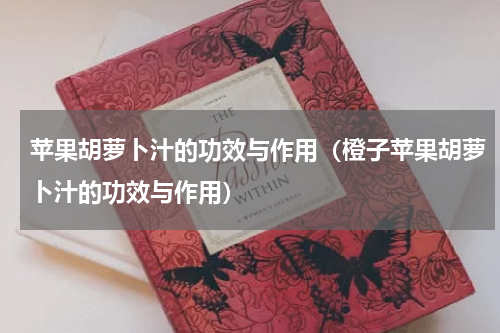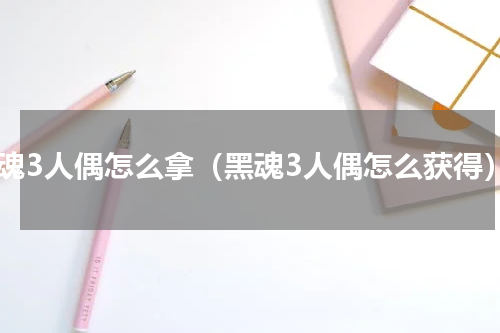Module8Storytime1.onceuponatime从前2.intheforest在森林里3.lookinto向…开始1.Allaloneinthedarkforest,Goldilockspickedsomeflowers.金凤花姑娘独自走进了阴暗的森林里,摘了一些花。岁时2.SpringFestive春节3.Teacher’sDay教师节4.bedifferentfrom与…

Module7 My past life
【重点短语】
1. primary school 小学
2. the name of… ……的名字
3. be born 出生
4. in England 在英格兰
5. in Shanxi Province 在山西省
6. quite difficult 非常困难
7. on the east coast of America 在美国东海岸
8. twelve years ago 12年前
9. lots of things to do 许多要做的事情
10. last year 去年
11. last weekend 上周末
12. from…to… 从…到…
【重点句型】
1. Where were you born? 你在哪里出生?
2. I was born in… 我出生在……
3. What was the name of the village? 那个村庄叫什么?
4. What was the name of your first school? 你上的第一所学校叫什么名字?
5. Who was your first teacher? 你的第一位老师是谁?
6. She was very friendly. 她非常友好。
7. Who were your first friends? 你最早的朋友是谁呢?
8. What were they like? 他们当时是怎样的?
9. What were you like? 你当时是怎样的?
10. There were lots of things to do in Quincy. 在昆西有很多事情可以做。
11. I was very happy there. 我在那里非常快乐。
12. There was a big living room with a TV, a kitchen, a bathroom and three bedrooms. 有一间大的起居室,里面有一台电视机,还有一间厨房,一个卫生间和三间卧室。
13. On my bedroom walls there were pictures of my favourite movie stars. 在我卧室的墙壁上,贴有我最喜欢的影星的图片。
14. Behind the house, there was a big garden with lots of trees and there was a small lake with fish in it. It was great to play there. 房子后面有一个大花园,花园里有很多树,还有一个小湖里面有鱼。在那里玩耍真好。
15. Many of them were my friends. 他们中很多都是我的朋友。
16. I was there for the last time in 2010. 我最近一次住在那里是在2010年。
17. One day I’ll go back, and I’m looking forward to seeing my friends again. 将来有一天我还会回去的,我盼望着在见到我的朋友!
Module8 Story time
【重点短语】1. once upon a time 从前
2. in the forest 在森林里
3. look into 向…里面看去
4. knock on the door 敲门
5. a girl with hair of gold 一个留着金色头发的女孩
6. push the door 推开门
7. go for a walk 去散步
8. pick up 捡起,拾起
9. pick some flowers 摘一些花
10. look around 环视,四下张望
11. in pieces 破碎
12. at first 首先,最初
13. sit down 坐下
14. point at 指着
15. walk into the bedroom 走进卧室
16. jump out of bed 跳下床
17. be asleep 睡着
18. go home 回家
19. change into 变成…
20. again and again 一遍又一遍
21. around the world 全世界
22. begin with 以…开始
【重点句型】
1. All alone in the dark forest, Goldilocks picked some flowers. 金凤花姑娘独自走进了阴暗的森林里,摘了一些花。
2. And soon she was lost. 不久她迷路了。
3. Then she noticed a little house, so she hurried towards it, and knocked on the door. 她注意到一栋小房子,于是她赶快朝那栋房子走了过去,敲了敲门。
4. Nobody answered, so she knocked again, and again. 没人回应,于是她又反复的敲门。
5. It was open. There was nobody there. 门开了,里面没人。
6. On a table there were three bowls with some nice food in them. 在一张桌子上有三个碗,碗里盛着好吃的东西。
7. The little bowl was just right. She finished all the food in it. 小碗里的正好,她把小碗里的东西全吃光了。
8. First she tried the big chair, but wasn’t comfortable. 首先,她试着坐在那个大椅子上,但不太舒服。
9. It was not comfortable either. 它也不舒服。
10. Soon the chair was in pieces. 那把椅子一会儿就散架了。
11. Very soon she was asleep in it. 很快她就在小床上睡着了。
12. There’s nothing in my bowl. 我的碗空了。
13. He wasn’t very happy! 他很不高兴。
14. Then Baby Bear pointed at the little girl in his bed. 小熊指了指他床上的小女孩。
15. Goldilocks jumped out of bed and hurried out of the house without her basket. 金凤花姑娘从床上跳了下来,也顾不上提篮子,便冲出了房间。
Module9 Life history
【重点短语】1. at the age of 在…岁时
2. Spring Festive 春节
3. Teacher’s Day 教师节
4. be different from 与…不同
5. Women’s Day 妇女节
6. find out 发现
7. National Day 国庆节
8. on the Internet 在网上
9. Children’s Day 儿童节
10. as well 也
11. New Year’s Day 新年
12. leave school 离开学校
13.May Day/Labour Day 劳动节
14. in many other languages 用许多其他的语言
15. half an hour 半小时
16. half past five 五点半
17. be worth doing 值得做
18. get married 结婚
【重点句型】
1. I’m writing about him for my English class. 我在写关于他的介绍,上英语课要用的。
2. We can find out about him on the Internet. 我们可以在网上找到关于他的资料啊。
3. He left school and began work at the age of 12. 他12岁就离开学校开始了工作了。
4. What did he do? 他做过什么?
5. I don’t know the exact date. 我不知道确切的日期。
6. But he took the name Mark Twain and became very famous in the 1860s. 不过在19世纪60年代,他用了马克•吐温这个名字,并且变得很有名。
7. Like many people four hundred years ago, Shakespeare’s parents didn’t learn to read or write. 像四百多年前的许多人一样,莎士比亚的父母不识字。
8. At school he liked plays, so he decided to be an actor when he finished school at 14. 在他14岁毕业的时候,他决定成为一名演员。
9. He became a successful actor and began to write plays. 他成为了一名成功的演员,并开始写剧本。
10. You can visit the theatre today, but it isn’t the same building. 今天你还可以去参观那个剧院,不在已是当年那个建筑了。
11. There was a fire in the old theatre. 老剧院发生过火灾。
12. William Shakespeare died at the age of 52. 威廉•莎士比亚52岁去世。
13. You can still see his plays in English and in many the languages. 你现在依然可以看见他的戏剧以英文和其他许多语言在演出。
14. He’s famous around the world. 他举世闻名。
Module10 A holiday journey
【重点短语】1. go there 去那里
2. drive us to their home 开车带我们去他们家
3. go swimming 去游泳
4. get there 到那儿
5. movie star 电影明星
6. a special holiday 一个特殊的假期
7. at the airport 在机场
8. Pacific Ocean 太平洋
9. this year 今年
10. have a good time 玩得高兴
11. be with sb. 和某人一起
12. on holiday 度假
13. by plane 坐飞机
14. such as 例如
15. the day before yesterday 前天
16. take a walk 散步
17. begin our tour of the city 开始这个城市的旅行
18. the Eiffel Tower 埃菲尔铁塔
19. many world-famous works of art 许多世界著名的艺术品
20. first of all 首先
21. wait in line 排队等候
22. at the station 在车站
23. do different things 做不同的事情
24. spend all day 花整天时间
25. take lots of photos 照许多照片
26. go with sb. 与某人一起去
【重点句型】
1. —Where are you going on holiday, Tony? 你打算去哪儿度假,托尼?
—To Los Angeles. 去洛杉矶。
2. I went there two years ago and enjoyed it a lot. 我两年前去过,玩的很开心。
3. How long did it take to get there? 你花了多长时间去那里?
4. Then our friends met us and drove us to their home. 然后我们的朋友去接我们,开车带我们到他们家。
5. Who was with you? 你和谁一起去的?
6. So what did you do? 那你们都做了些什么呢?
7. Guess what? 你猜怎么着?
8. I was so excited! 我太激动了!
9. How long did you stay there? 你们在那里呆了多久?
10. We stayed there for two days. 我们在那里呆了两天。
11. Jenny and I arrived by plane the day before yesterday. 珍妮和我前天坐飞机到的。
12. We were tired so we relaxed at home and began our tour of the city yesterday. 我们感觉很累,所以我们在家休息,昨天开始在市里观光。
13. It has many world-famous works of art, such as the Mona Lisa. 它有许多世界闻名的艺术品,比如《蒙娜•丽莎》。
14. This morning we took a walk. 今天上午我们去散步了。
15. We also did some shopping. I bought a present for you. I hope you’ll like it! 我们也买了些东西,我也给你买了件礼物,希望你会喜欢。
16. There were lots of tourists, so first of all, we had to wait in line for an hour, and then we went to the top. We waited till all the lights were on. 有很多游客,所以我们得排队等一个小时,后来我们到了塔顶。我们在那儿一直等到所有的灯都亮了起来。
17. Tomorrow we’re going to visit a famous palace and take a boat tour on the River Seine. 我们明天要去参观一个著名的宫殿,还要乘船游览塞纳河。
18. I’ll write again. 我会再给你写邮件的。
Module11 Body language
【重点短语】1. body language 肢体语言
2. touch noses 碰鼻子
3. nod head 点头
4. best friend 最好的朋友
5. shake hands 握手
6. film star 电影明星
7. each other 互相
8. foreign students 外国学生
9. in fact 事实上
10. stand close to 站得离......近
11. be late for class 上课迟到
12. move away 离开,搬走
13. eat candy 吃糖果
14. be careful 小心
15. class rules 班规
16. listen to 听
17. stand in line 站成一排
18. enter the lab alone 独自进入实验室
19. on time 准时,按时
20. hold on to 抓紧,坚持
【重点句型】
1. I’m welcoming the visitors. 我要去迎接这些参观者。
2. How do I do that? 我该怎么做呢?
3. I didn’t know that. 我(原来)可不知道。
4. We Chinese often shake hands and smile when we meet visitors, and sometimes we nod our heads. 我们中国人见到来访者的时候经常握手、微笑,有时候点头示意。
5. That’s because people do different things in different countries. 那是因为不同的国家的人做法不同。
6. Our new foreign students are going to arrive very soon, and here are some ways to welcome them. 我们的外国新生很快就要到了。下面是迎接他们的一些方式。
7. How close do you stand when you talk to a friend? 当你和朋友交谈时站得有多近呢?
8. But don’t stand too close to… 但是不要站的离……太近!
9. Give them more personal space. 给他们更多的个人空间。
10. How about touching people? 那么关于身体接触呢?
11. Chinese girls often walk arm in arm with their friends. 中国女孩就常常和朋友手挽着手走在一起。
12. But in Britain many people don’t like other people to touch them at all. 但在英国,许多人一点也不喜欢别人碰他们。
13. In some places, it isn’t polite to look at people when they talk, but in other countries it isn’t polite to look somewhere else. 在一些地区,交谈时看着对方是不礼貌的,但在另外一些国家,交谈时看别的地方是不礼貌的。
14. And how do you say goodbye? That’s easy. Wave to say goodbye. 如何表示告别呢?那很简单,挥手告别。
15. In Greece, it’s not at all polite! In fact, it’s very rude! 在希腊,那绝对是不礼貌的!事实上,那是很粗鲁的!
Module12 Western music
【重点短语】
1. Beijing Opera 京剧
2. the capital of Austria 奥地利首都
3. think about 认为,考虑
4. pop music 流行音乐
5. Western Music 西方音乐
6. dance to 随着…跳舞
7. the center of …的中心
8. European classical music 欧洲古典音乐
9. on the river 在…河畔
10. hundreds of wonderful pieces of music 数以百计的美妙的乐曲
11. play music 演奏音乐
12. traditional music 传统音乐
13. take place 发生
14. at the same time 同时
15. watch it on TV 在电视上观看
16. types of music 音乐的类型
17. the rest of 其余的...
18. in the last ten years 在过去的十年里
19. at that time 在那时
【重点句型】
1. This is Western music, isn’t it? 这是西方音乐,是吧?
2. —Is this by Strauss or Mozart? 这是斯特劳斯还是莫扎特的作品?
—It’s by Strauss. 它是斯特劳斯的作品。
3. Do you know anything about him?你了解他吗?
4. What a beautiful city! 多么美丽的城市!
5. This is called The Blue Danube. 这首乐曲叫《蓝色多瑙河》。
6. It goes through Vienna. 它流经维也纳。
7. Listen to this fantastic voice. 你听这绝妙的嗓音。
8. I’m a fan of rock music. 我是一个摇滚乐迷。
9. Give us a break! 让我们清净一会吧!(饶了我们吧!!)
10. It’s so noisy! And much too fast! 太吵了!而且节奏太快了。
11. I don’t believe it! 我简直无法相信!
12. Vienna is a beautiful old city on the River Danube in the centre of Europe. 维也纳是位于欧洲中部多瑙河畔的一座古老而美丽的城市。
13. The father, Johann Strauss the elder, wrote and played music for traditional dances, called the waltz. 父亲老约翰•斯特劳斯创作并演奏一种叫华尔兹的古典舞曲。
14. His dance music made him famous all over Europe. 他的舞曲让他闻名于欧洲。
15. He wrote over 150 waltzes. 他谱写了150多首华尔兹舞曲。
16. Mozart was another very important composer. 莫扎特是另一位非常重要的艺术家。
17. Before he was six, he played not only the piano but also the violin. 他不到六岁就不仅会弹钢琴,还会拉小提琴。
18. His family took him around Europe and he gave concerts in many cities. 他的家人带着他周游欧洲并在许多城市巡回演出。
19. He wrote hundreds of wonderful pieces of music. 他谱写了几百部动人的音乐作品。
20. But he became very poor and died in 1791 when he was only 35. 但是他后来变得很贫困,于1791年去世年仅35岁。
21. Like Johann Strauss, father and son, he was a great European musician, and many people still think his music is perfect. 像约翰•斯特劳斯父子俩一样,他是一位伟大的欧洲音乐家。现在许多人依然认为他的音乐是完美的。










